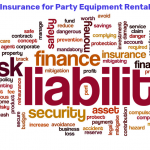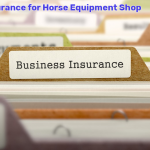If you are running a business that requires tools and equipment to perform its functions, then you should be seriously thinking about the consequences of losing the equipment through fire, theft, damage or any of the other ways that you may have to replace or repair them.
Equipment insurance covers the cost of replacing your tools and equipment when they are lost or damaged.
What Are You Looking For?
Choose and Get Your Free Quote:👇️
General Liability Insurance ->
Professional Liability ->
Product Liability Insurance ->
Commercial Auto ->
Workers Compensation ->
Commercial Property ->
Other Business Insurance ->
Naturally, the kind of equipment you are relying upon in day-to-day activity will depend on the kind of business you run.
Still, the common feature across the board is that you will have had to invest your own money to have the equipment available whenever and wherever you need it, and without the equipment, you can’t run your business.
What are the main business categories that Equipment Insurance is designed for?
One thing is shared across all kinds of businesses.
Even a short stoppage can cause considerable financial losses.
As well, you would not just be losing out on the income you expected to earn, but it can also cause damage to your business reputation because customers are not getting the service they were expecting or promised.
Having enough equipment insurance means that in the event of any theft, flooding or fire, you can go out and replace the equipment immediately, knowing that the insurance company will meet the cost of the new equipment.
What kinds of businesses need Equipment Insurance?
Home-based enterprise
Several kinds of businesses can be run from home and need specific equipment.
A shortlist includes:
- Music teachers – instruments, audio and recording equipment etc.
- Dance instructors – costumes, audio equipment, props
- Artists – easels, lights, projectors
- Instructors – projectors, screens
In each case, there will be a need for insurance because the equipment or devices are highly specific and, in many cases costly – a piano can cost upwards of $10,000, as one example.
Workshops
Carpenters, metal workers, joiners, blacksmiths, stonemasons and all the other specialized tradesmen each need specific tools and equipment.
Retail services
Hairdressers, beauty salons, barbers, photographers operate from street-front or mall shops and need to install the dedicated equipment required for their operations. In most cases, this is highly specific and working without them is impossible.
Manufacturing
The range of operations for small business manufacturing is extensive.
Some businesses contract out to other manufacturers, supplying parts and components according to specification. They must have dedicated equipment that matches the exact requirements of their customers.
Others manufacture and sell directly to the public. They generally have more general equipment that they can use to make what the public demands.
Some examples are:
- Hair wigs, eyelashes
- Costume jewelry
- Clothing, swimsuits
- Kids toys & games
In all of these, you may have to invest in specialized equipment, and the viability of the business will depend on you having the gear running at all times.
Contracting and Building
Some examples of what you may need to cover are diggers, cherry pickers, mixers, mini-excavators, forklifts, generators, trailers.
The list is endless, and it’s all expensive and specialized. In case of an accident, fire or theft, you may have to stop work, and unless you can replace the lost equipment quickly, there is the risk of becoming in breach of a contract to complete work by a specific date. Having the assurance that the insurance will reimburse you means you can go out and buy the replacement equipment immediately.
Many other businesses require dedicated and specialized equipment.
In every case, there are the same risks:
- Repairs & Maintenance
- Cleaning services
- Mobile services
- Food & entertainment
- Farming
What are the leading causes of Equipment losses?
Theft
In many cases, the equipment has to be mobile, being moved around between worksites.
It may also have to be stored onsite overnight. In such cases, it may be impossible to keep the equipment fully secure at the same level as when they are locked up at home or in the workshop.
Even if the equipment comes with you whenever you move onsite and back home at the end of the shift, having to leave it in your van or truck leaves it open to public view, and it can be pilfered while your back is turned.
If this describes a significant part of your business, then equipment insurance is an essential element of your protection.
Fire
Modern work practices have made us all highly dependent on power, raising the danger of fire wherever you are working.
High-speed and high-power equipment works faster but also comes with more chances of sparking a fire or cutting through a gas line or power line and destroying the equipment.
Vandalism
Out of curiosity or with malice, people can damage your equipment when you are not looking, and it is impossible to have it all under lock and key when you need all the equipment to be close by when working.
Flooding
Especially if you work outdoors, there are always dangers of sudden storms or flash floods that can completely ruin your equipment.
Insurance against this will keep your business running.
What is an example of an Equipment Insurance claim?
An office cleaning service company had a contract to steam-clean the lobby of a city entertainment center once each night after shows had stopped.
It was agreed that they could move their specialized equipment into a dedicated room because it was too heavy to be moved onsite and offsite in the short time available. One evening, there was a fire reported in the complex close to that room, and after evacuation, the fire brigade flooded the area with foam even though it was later found to have been a false alarm. The equipment was ruined, and the owners of the cleaning company recovered the cost of replacement from the insurance company.
How much equipment insurance do you need, and how much will it cost?
The level of insurance is entirely dependent on the value of the equipment you are going to cover.
You need to calculate the replacement cost of the equipment carefully, not just the “book value.” Otherwise, you could end up having to fork out much more than the insurance company is liable for.
The cost of the insurance will also depend primarily on the value of the equipment you are covering.
Two other factors will come into play:
Your claims history – if you have been covering these assets for a long time without any claims, you can usually negotiate a cheaper rate.
The amount of the deductible you are agreeing to in the event of a claim. It is applied per occurrence.
For example, if one tool is lost, the deductible comes out of the insurance settlement.
If you claim for five tools that were damaged in one incident, only one deductible is taken out of the insurance settlement.
In general, the higher the deductible, the lower the premium will be.
When choosing the deductible, take into account how much money you have available in the event of a loss for out-of-pocket expenses.
In general, equipment insurance will cost between $15 and $20 per thousand dollars value per year, with a minimum deductible of around $250 per claim.
FAQ
Do all equipment owners take out insurance?
In fact, some organizations don’t take out insurance for their equipment.
This is because they have very large operations and can afford to carry the risk because the premiums would be more expensive than their estimated losses. An example is the US Army, which self-insures all of its equipment under the DFARS arrangement.
The US federal government also self-insures most of its equipment, as detailed in this report to Congress.
This approach should only be taken by giant companies that have the resources, like cash in the bank, to be able to replace any lost, stolen or damaged equipment immediately.
Any other business should take a more realistic approach and balance the high risk of having no insurance with the relatively small cost of insurance premiums.

















